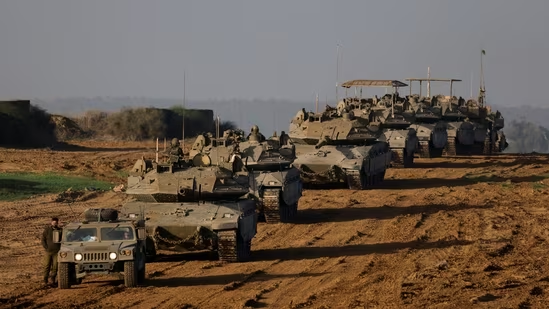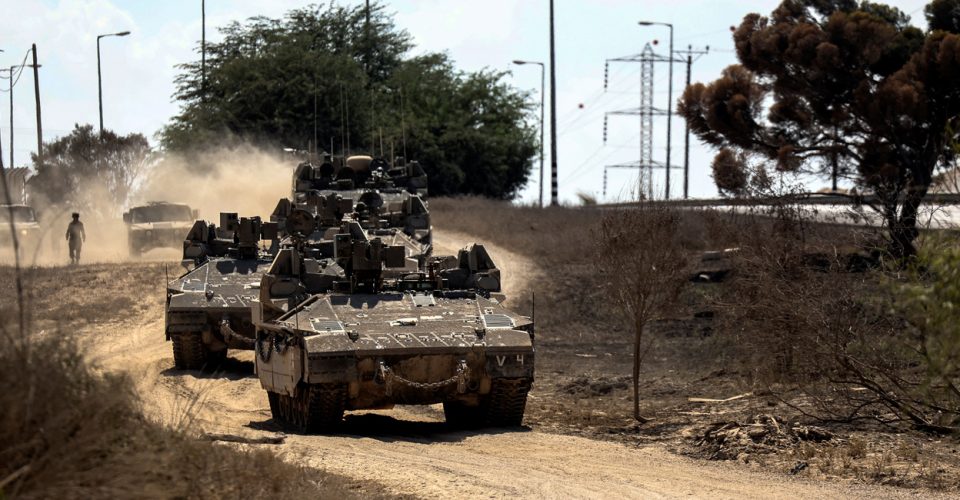FALCON POWERS – After two weeks of fighting in the city of Rafah, the occupation army is racing against time to invade the city, especially in light of the muted American and European reactions that did not reach the level of condemnation.
The occupation tanks that entered the Rafah crossing in the early days of the battle are working to expand their deployment along the border strip between Egypt and the Gaza Strip, or what they call the “Philadelphia Corridor.”
According to eyewitnesses, the occupation tanks have crossed the Salah al-Din Gate, which is located about three kilometers west of the gate, and reached the level of the Yibna camp in the center of Rafah.
This rapid advance is not proceeding at the same pace in the residential neighborhoods, such as the Brazil neighborhood, where the tanks are stationed at the Halal market, while they have not exceeded the police headquarters on the outskirts of the Jneineh neighborhood and remained in the vicinity of the Al-Najjar Hospital, one kilometer from Salah al-Din Street.

Helicopters are trying to control the center of Rafah and open fire on anyone moving in the area.
Fierce armed clashes are taking place with resistance fighters in the neighborhoods of Al-Salam, Al-Jneineh, Brazil, and Al-Tannour, with video clips indicating their ability to inflict losses on the occupation army.
At least, the occupation army is seeking to control the entire Philadelphia Corridor and make it, along with the Rafah crossing, a new pressure card against Hamas, which refuses any non-Palestinian presence at the crossing, at a time when the Palestinian Authority has refused to take over the crossing without it being linked to a political project aimed at establishing a Palestinian state.
Egypt Rejects Cooperation with Israel on Rafah Crossing Amid Battle
Egypt rejects cooperating with Israel on the Rafah crossing, which remains postponed until the end of the Rafah battle. The Israeli army said that in the last two days, it has made significant progress in Rafah, advancing westward towards the Shabura and Brazil neighborhoods, where there is ongoing exchange of fire with militants.
Against the backdrop of this progress, the International Court will tomorrow in The Hague render its decision on the lawsuit filed by South Africa, which called for a ceasefire.
In Rafah, Israeli officials explained last week that even if the court issues an order to stop the fire, there is no intention to respect that, and it could lead to a discussion in the UN Security Council, where the United States is likely to use its veto against any decision.
The assessment in Israel, according to the Yedioth Ahronoth newspaper, is that if there are orders calling for a cessation of hostilities, Israel will not comply with them.
Israel is preparing for more difficult scenarios, and some prefer a stricter decision to cease fire in the entire Gaza Strip, not just in Rafah, because there is a fear that the United States will not use its veto if the matter is focused only on Rafah.


